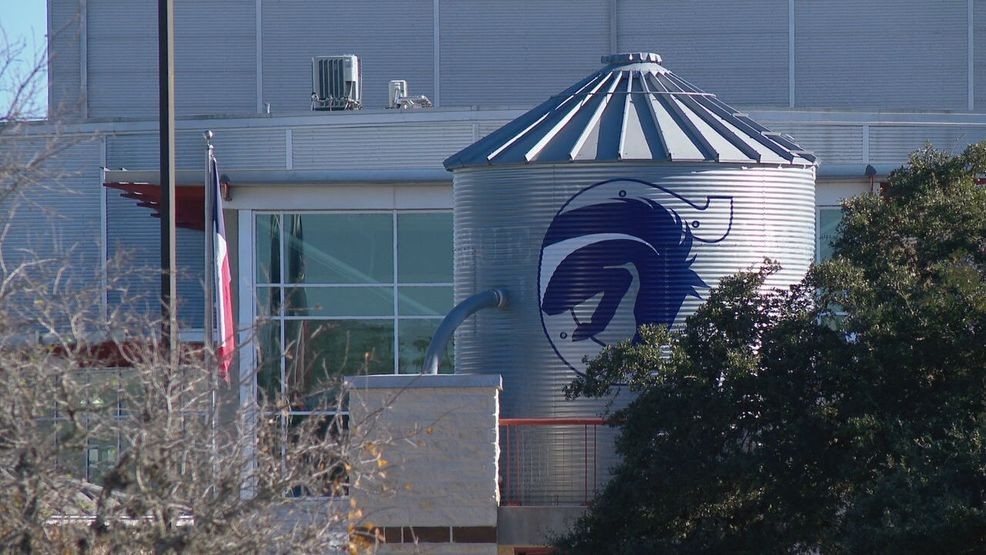Several San Antonio-area school districts are asking voters to approve what’s called a VATRE next month, which stands for Voter Approval Tax Rate Election.
Districts say a few extra cents on the tax rate can mean big changes for teachers and students.
Around San Antonio, four school districts — Boerne, Schertz-Cibolo-Universal City, East Central, and Judson ISDs — are asking voters to sign off on tax rate increases.
What is a VATRE?
A Voter Approval Tax Rate Election (VATRE) gives taxpayers the final say when a district wants to raise its maintenance and operations (M&O) tax rate above the state-defined limit.
districts calculate a voter-approval rate, which is the highest rate they can set without a public vote.
If they need to go higher — often to fund salaries or daily operations — they must hold a VATRE.
School leaders say the VATRE process is becoming more common as state funding lags behind rising costs, and much of the money from Austin is earmarked for specific purposes, such as safety or technology, leaving little flexibility for payroll.
Last November, more than 50 Texas school districts held VATREs, and about 85 percent passed, according to data from the Texas Association of School Business Officials.
Some districts are also asking voters to approve what’s known as “golden pennies.”
Each golden penny is basically one cent of the school tax rate that districts can add to help pay for things like teacher raises, classroom programs, and operations — and the key is, they get to keep all of that money locally.
Unlike other tax dollars, golden pennies aren’t subject to state recapture, so the money doesn’t get sent back to Austin.
Local districts and VATRE details
“We’ve been saying bonds are for buildings and VATREs are about people, because that’s true for Boerne ISD,” said Maggie Dominguez, communications director for Boerne ISD.
Nearly one in five Boerne teachers left last year.
The district says a two-cent increase would bring in about $4.8 million in annual funding, most of which would go toward teacher raises.
A 2-cent VATRE increase means $0.02 more in tax for every $100 of taxable property value. On a $300,000 home, that 2-cent increase equals about $60 more per year in school property taxes.
For every $1.00, an additional 60 cents would come in from the state.
“We’ve seen teachers leaving for higher-paying jobs, sometimes in other districts, sometimes outside education altogether,” Dominguez said.
Boerne ISD is seeking golden pennies, explained above.
The Schertz-Cibolo-Universal City district is facing a similar challenge with staffing. A six-cent increase would help pay staff, boost security, and expand student programs.
“We’re already in the bottom third of teacher salaries,” said Superintendent Paige Meloni. “Without new funding, we could see longer vacancies in special education and transportation.”
According to the district website, the starting salary for SCUC ranks near the bottom of area districts. This measure funds raises for 2,026 employees through 2028-29.
The money generated from the tax increase would be broken down as follows:
- $6.3M for student programs, including Career & Technical Education, athletics, and fine arts
- $6M for safety and security
- $3M for teacher and staff raises
- $900K for technology device replacement
East Central ISD is asking for a five-cent increase to avoid cuts and keep an armed officer on every campus.
“The increase would generate more than $7.6 million, with over 60% of the funding ($0.03 of the $0.05) coming directly from the state annually in perpetuity,” the district website says.
Without the VATRE, ECISD faces a $4.6 million budget deficit.
The increase would also cover compensation for teachers and staff (positions not covered by House Bill 2), ensure an armed officer is assigned to every school, keep essential staff in place, maintain vital student programs and resources, the site says.
Judson ISD seeks a four-and-a-half-cent increase to help cover a $37 million deficit and maintain competitive pay.
The VATRE will provide Judson ISD with approximately $21 million in additional funding annually.
“In recent years, districts across Texas have experienced reduced unrestricted funding from the state, alongside the rising daily operational costs and inflation,” the district website says.
Even if it passes, Judson officials say the VATRE won’t close their deficit completely, but it would help.
What’s Next
If voters approve the VATREs on the November ballot, districts say the extra revenue could help them avoid layoffs, raise salaries, and maintain student programs.
Early voting runs October 20 to October 31.
Election Day is November 4.
If they fail, many districts warn they’ll be forced to make difficult cuts or may struggle to keep staff.
